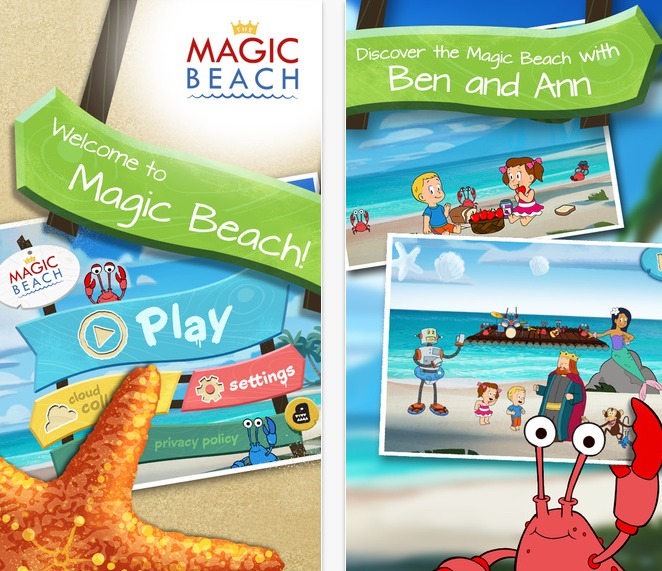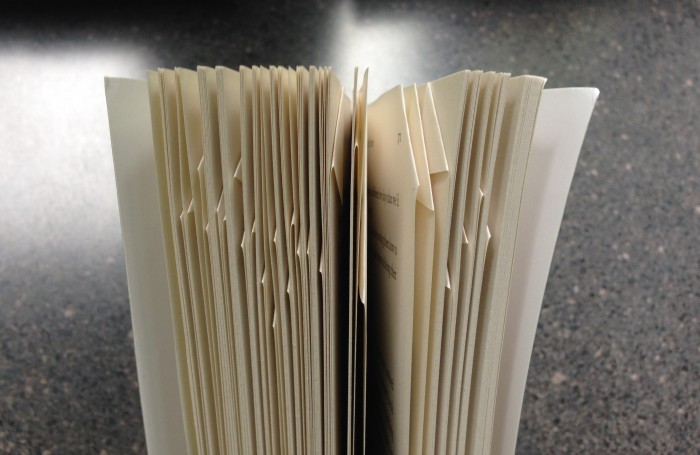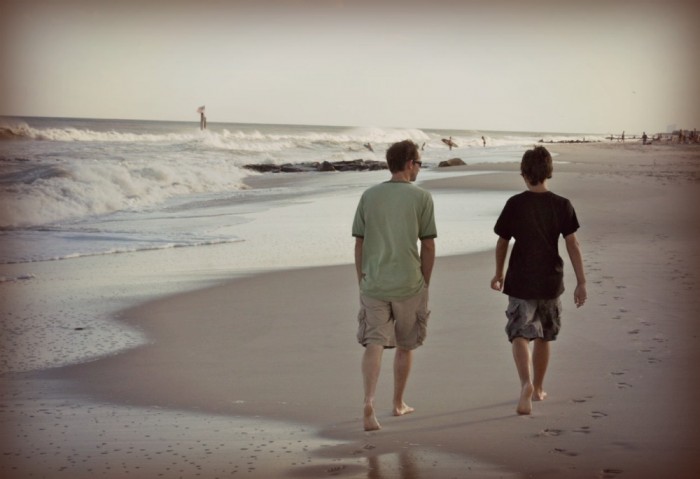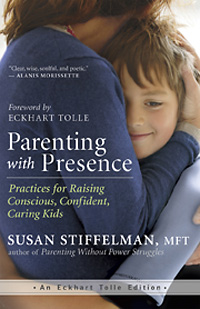Hey, Baby! A Collection of Pictures, Poems, and Stories from Nature’s Nursery comes from National Geographic Kids. It’s like Eric Carle’s Animals, Animals meets Rudyard Kipling’s Just So Stories meets animal encyclopedia, with the beautifully detailed presentation of a nature documentary. It’s genuinely enjoyable bedtime reading to help foster a love of animals and the world they live in.
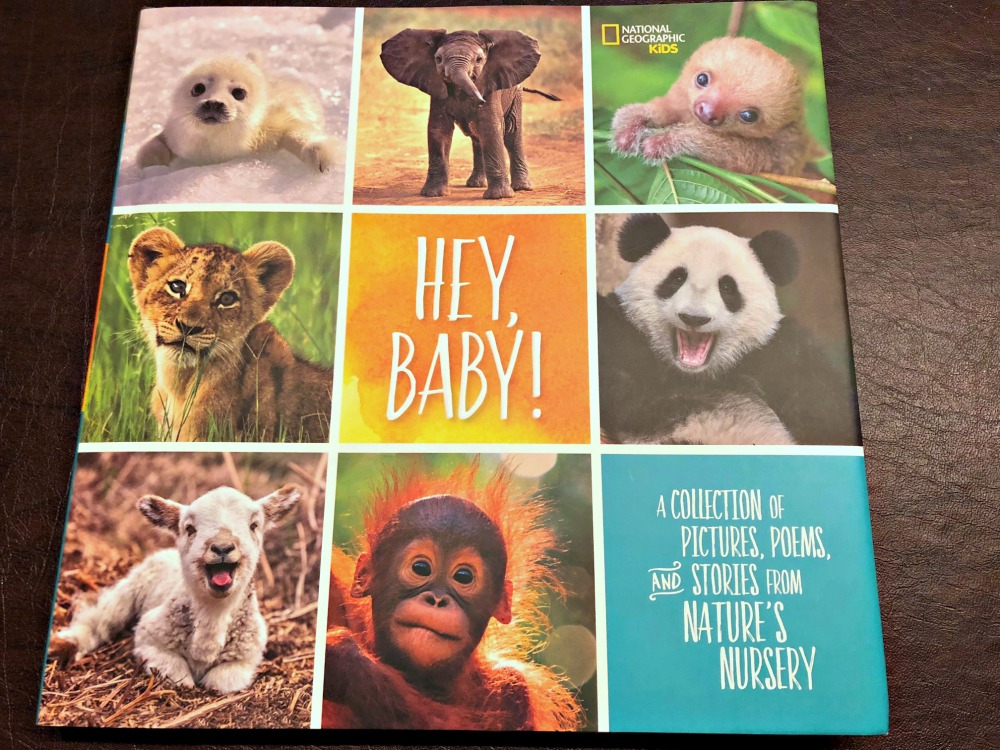
To know a thing we must love it,
and to love a thing we must know it.
-Kitaro Nishida (Japanese philosopher)
Disclosure: I received this product for free from Moms Meet, May Media Group LLC, who received it directly from the manufacturer. As a Moms Meet blogger, I agreed to use this product and post my honest opinion on my blog. The opinions posted are my own.
Did you know a baby zebra is called a fool?!
How about that a polar bear can smell a seal from a mile away?
Have you heard the aboriginal folktale that explains how the kookaburra got his laugh? (Much to the eternal shame of the showoff lyrebird.)
I’ve written a number of times about the importance of teaching kids about— and exposing them to— nature and its inhabitants, early and often. I mean, we all do this intuitively to some extent; we take them to the park and jump in leaf piles, we go to the zoo and point out the giraffe’s long neck, we hug puppies and feed ducks, we ask them what does a lion say? to hear their adorable roar.
In those posts, I’ve always stressed helping kids to know nature and animals, because when they know how insects fit in the food chain, they’ll care about preserving them for the sake of the birds and small mammals. When they know the call of a crow and see how clever and funny they are, they’ll notice when numbers dwindle and act to preserve them. When they have the opportunity to look a loggerhead turtle in the eye, conserving the ocean has more urgency, more meaning.
I’d never really thought about how it works the other way too, but it does. How do we inspire kids to want to know the animals and their habitats? We foster a love of them: we spend time as a family at the aquarium, or birdwatching, or playing in the ocean, creating memories. We talk about what our favorite animals are. We buy stuffed animals to snuggle with at night. We invite pets into our homes. And we do one of my favorite things.
We read to them.
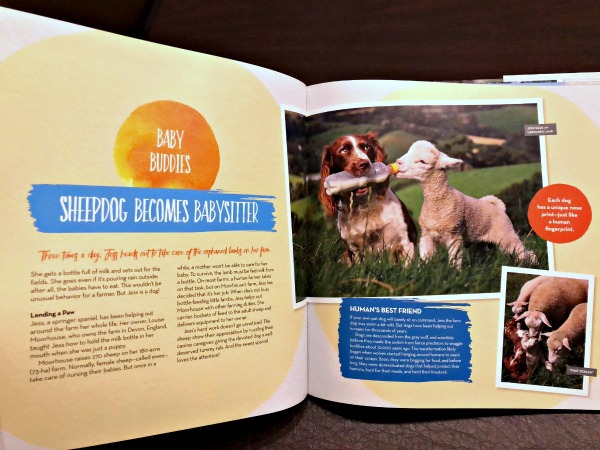
Hey, Baby! A Collection of Pictures, Poems, and Stories from Nature’s Nursery comes from National Geographic Kids. It’s like Eric Carle’s Animals, Animals meets Rudyard Kipling’s Just So Stories meets animal encyclopedia, with the beautifully detailed presentation of a nature documentary.
Organized by habitat, the book is full of the amazing photography and fascinating animal facts you’d expect from National Geographic. Each page highlights a different (super cute, obviously) baby animal and tells you their “baby name” (pup, eaglet, calf, etc), where they grow up and what they eat.
What sets it apart, and makes it ideal for bedtime reading, is the snackable nature of the facts shared. Plus there are animal poems, fables and folktales from around the world, and stories of animal friendships and successful rescues/rehabs. At the end of each section is a “Tot Lot,” a photo gallery of baby animals with a quick bit of trivia about each.
All in all, it’s a visual and lyrical treasure. A wealth of information, surrounded by beautiful pictures of adorable baby animals, wrapped up in wonderfully readable stories just right for sharing with kids.
(I feel it’s important to point out that my kids were all, at one point or another, obsessed with a particular animal encyclopedia we had that is intended for children. I gamely read that to them at bedtime, but it wasn’t fun reading for me; it was— well, it was reading pages from an encyclopedia every night for like a month. Hey, Baby! is a totally different experience from that. I read it cover to cover and genuinely enjoyed every page, making note of different stories and authors I want to follow up on.)
The book is a coffee table book, nice and big, perfect to hold together with your child while reading. It would be a great gift for any little, but exceptional as a baby shower or welcome-to-the-world present (I’m a BIG fan of giving lovely keepsake hardbacks to babies, so that they grow up seeing it on a shelf until they are old enough to have it read to them, and then one day read themselves, and eventually hand down to another baby. Most babies get more clothes and toys from other people than they will ever fully use).
Extra incentive! Purchases of National Geographic Kids books support the exploration, research, and conservation efforts of the National Geographic Society.
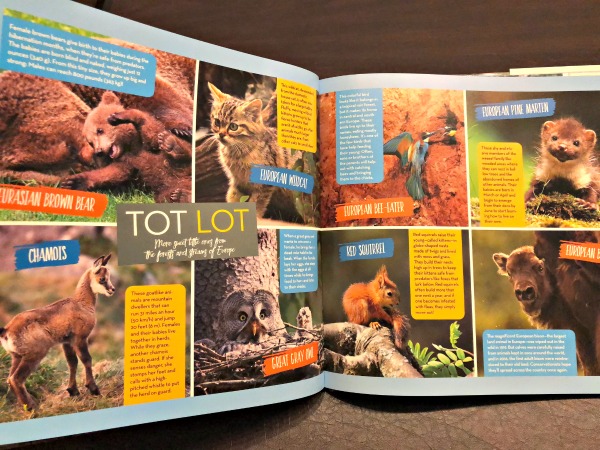
You can find Hey, Baby! A Collection of Pictures, Poems, and Stories from Nature’s Nursery pretty much everywhere— at traditional bookstores like Barnes & Noble; local independent stores; Target, Costco, Walmart, etc; and of course online on sites like amazon.com and shopng.com/books.
National Geographic online for more good stuff:
- kids.nationalgeographic.com
- National Geographic Kids on Facebook and Twitter
